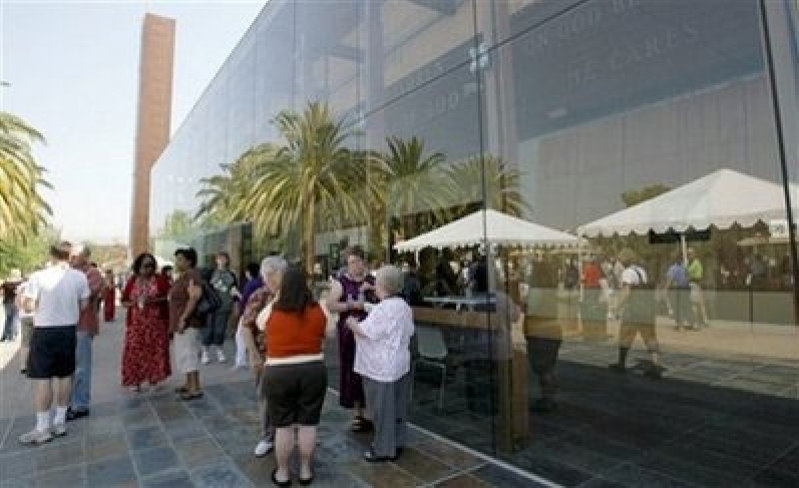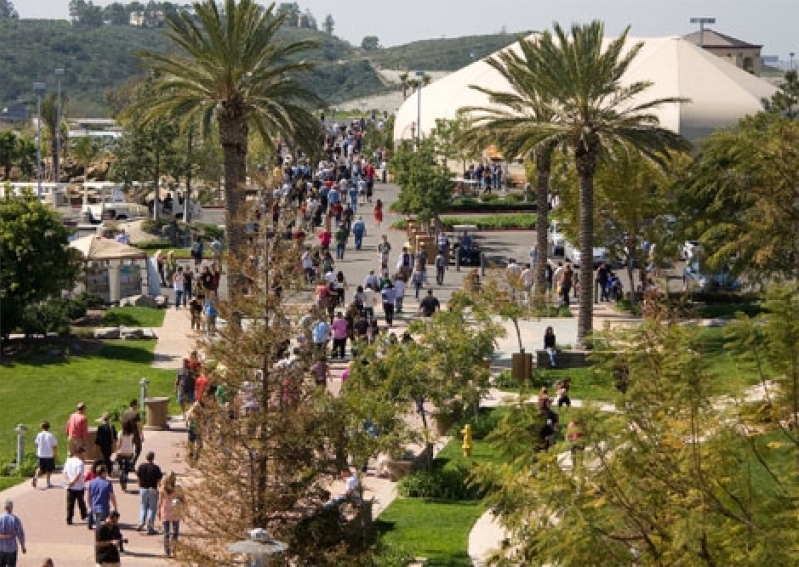

There's a myth today that megachurches are just a contemporary fad and will fade out. That's just not true, asserted famed evangelical pastor Rick Warren.
"Christianity for 2,000 years has had large churches, including the very first one," the Saddleback Church pastor said Wednesday during a four-day conference. "The first church in Jerusalem was five times bigger than Saddleback."
Most Bible scholars say the first church grew from 120 to over 100,000 people within 20 years, Warren noted.
"So the very first church was a megachurch," he highlighted, as he accused those who say the megachurch era will die out of not knowing church history.
The number of congregations with 2,000 or more weekly attendees continues to grow in the U.S. Researchers at Hartford Seminary in Connecticut estimated in 2007 that there were 1,250 Protestant megachurches in the country. In 1960, only 16 churches had attendance over 2,000.
Though they make up less than one percent of all U.S. religious congregations, more than half of American worshippers are found in the largest 20 percent of megachurches.
Hartford researchers Scott Thumma and Dave Travis expect megachurches to be around for a while, they indicated in their report.
While many people believe megachurches are a modern phenomenon, Warren wants to emphasize that it's a 2,000-year-old idea.
Moreover, multi-site churches – which have begun to explode in recent years – are nothing new either.
Where did the more than 100,000 people attending the first church in Jerusalem meet? Warren posed to pastors at the "Radicalis" conference.
They met in temple courts (plural emphasized) and from house to house, he said, citing the New Testament book of Acts.
"They met in different courts," Warren underlined. "Notice: one church, multiple locations. One church, multiple venues."
"That's a biblical concept," he stressed.
Saddleback Community Church in southern California currently has 12 "temple courts," eight of which are on the Lake Forest campus and four of which are in other cities. Rather than build one large temple court, or a stadium to fit the some 22,000 weekly attendees, Warren chose to have a campus with multiple smaller buildings and several separate campuses, in keeping with the standard set by the first church.
Plus, it's better stewardship, he said.
"I'm not interested in building a stadium. A building that's that big is used once a week and sits empty [the rest of the week]," he said. "You need to understand this, pastor: nobody really likes big churches. The only people who like big churches are pastors because we like to preach to a large crowd. People don't go to church because of size. They put up with size in order to get the benefits."
Most megachurches have opted to approach their explosive attendance growth with a strategy other than building a larger building. According to Hartford researchers, only five percent of megachurches have sanctuaries of 3,000 seats or more. While the average weekend megachurch attendance in 2008 was 4,142, the average main sanctuary seating was 1,794.
Over the last five years, over 30 percent of megachurches adopted the multi-site model.
Saddleback Church has had consistent growth over the past 30 years, according to Warren. Last year was the congregation's "greatest year" with record numbers of baptisms, small groups and missionaries.
The key to Saddleback's growth, and to the first church in Jerusalem’s growth for that matter, is growing larger and smaller at the same time, he said. Large group worship and small group fellowship (meeting from house to house) are described in the book of Acts.
Small groups are not an option, Warren stressed. They serve as the basic cells in the body of Christ
"One cell (a church body without small groups) that gets bigger and bigger; there's a word for that: it's called cancer. You don't want to be a cancer," he said. "A healthy body is made up of large group worship, small group fellowship."
Saddleback has more people in small group Bible study every week (some 32,000) than in worship attendance on weekends (some 22,000), he noted.
The "Radicalis: For Radicals Only" conference kicked off on Tuesday. The aim of the event is to get pastors and other Christ followers back to the root of the church and the Christian faith.







